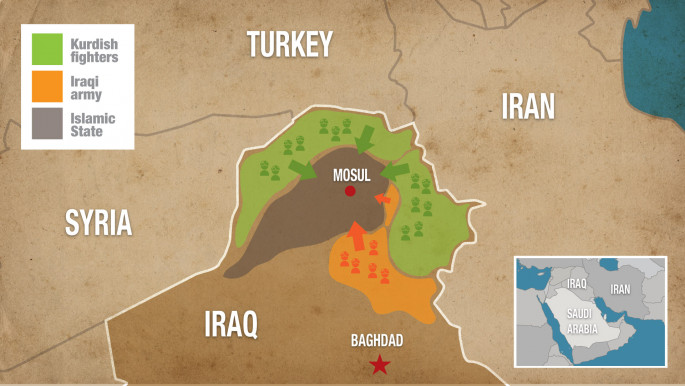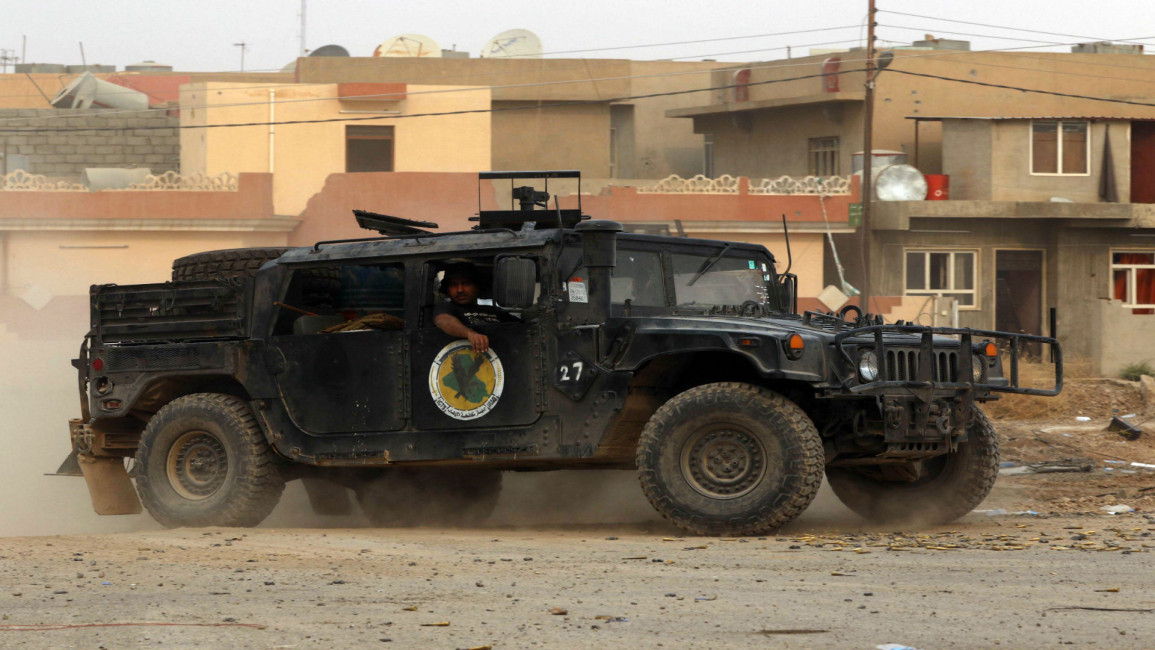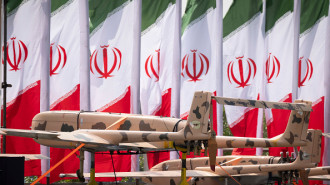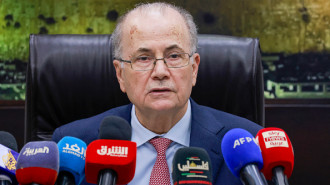Iraqi special forces uncover bomb factory, tunnels near Mosul
Iraqi special forces east of Mosul uncovered a network of underground tunnels and a bomb-making facility on Thursday in a village recently retaken from the Islamic State as their allies battled the militants in a push toward the city from the south.
Special forces commanders said the operation was proceeding as planned, but that they were waiting for forces in the south to advance further before resuming their push toward the country's second largest city, which fell to IS in 2014.
"The operation has not been stopped and is proceeding as planned," special forces Brigadier General Haider Fadhil said.
Iraqi army Major General Najim al-Jabori said forces south of Mosul retook the town of Staff al-Tut in the Tigris River valley the day before, and are now 20 miles (35 kilometres) from the city.
He said local tribal and militia forces have been deployed to protect the gains while his troops regroup for their next push toward the city.
The special forces, who are five and a half miles (9 kilometres) east of the city, continued cleanup operations in the village of Tob Zawa.
They found a tire shop that had been converted into a factory for making roadside bombs and attaching armour to vehicles. They also found a tunnel equipped with fans and lights that ran from beneath a mosque out to a road.
Iraqi forces have found extensive tunneling networks in areas retaken from IS, which the militants used to elude US-led coalition warplanes.
 |
|
| [Click to enlarge] |
IS has also rigged homes and other buildings with explosives to slow the troops' advance.
Many fear the extremist group may resort to more brutal tactics as the forces converge on the city, which is still home to more than a million people.
The UN’s public health agency said Thursday it has trained 90 Iraqi medics in "mass casualty management," with a special focus on chemical attacks.
The extremist group is believed to have crude chemical weapons capabilities, and Iraqi forces say they are prepared to encounter them on the battlefield.
The World Health Organisation said that of the 700,000 people expected to flee Mosul, some 200,000 will require emergency health services, including more than 90,000 children needing vaccinations and 8,000 pregnant women.
The International Organisation for Migration says around 9,000 people have fled so far. Until now, the battles have taken place in a belt of sparsely populated farming communities around the city.
The United Nations' refugee agency is shipping tents, blankets and other aid from the United Arab Emirates to northern Iraq to help those affected by the military campaign.
Soliman Mohamed Daud, a senior UNHCR supply officer, told The Associated Press that 7,000 units of the relief aid will be sent to northern Iraq starting Thursday.
The Mosul offensive is the largest Iraqi military operation since the 2003 US-led invasion, and involves more than 25,000 Iraqi soldiers, Federal Police, Kurdish forces, Sunni tribal fighters and state-sanctioned Shia militias.
It marks the first time that Iraq's largely autonomous Kurdish region has allowed federal forces to operate in its territory since the overthrow of Saddam Hussein, but the two sides remain deeply divided over the boundaries of the Kurdish region and the sharing of the country's oil wealth.



